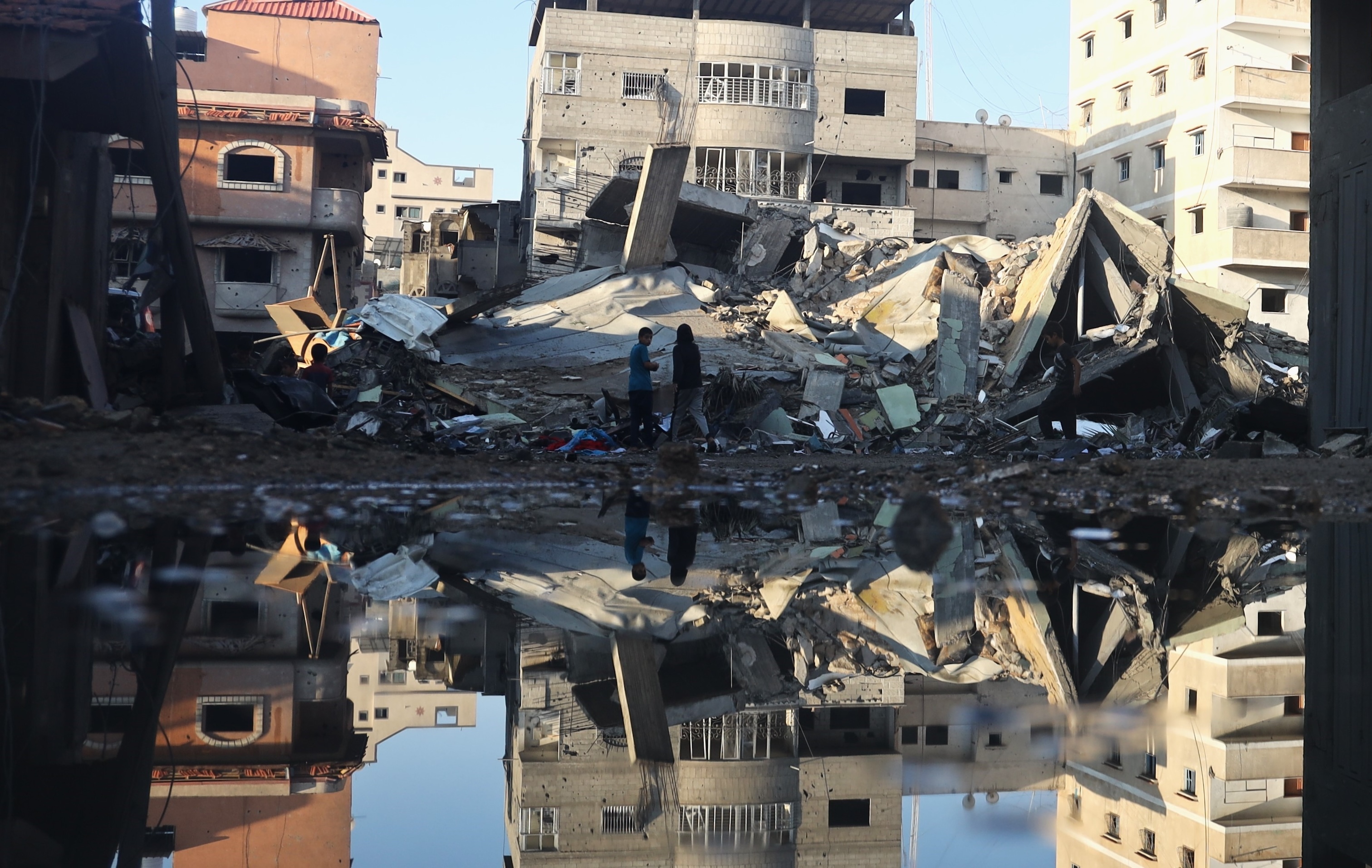FAO expresses deep alarm over acute hunger in the Gaza Strip
UN agency issues call for urgent action in wake of Integrated Food Security Phase Classification report

According to the IPC report, at least one in four households (more than half a million people) face catastrophic acute food insecurity conditions in the Gaza Strip.
©UNICEF/UNI457951/El Baba
Rome - The Food and Agriculture Organization of the United Nations (FAO) is deeply alarmed by the deteriorating food security situation in the Gaza Strip, where the entire population of about 2.2 million people is now facing acute hunger, according to a new report published on Thursday by the Integrated Food Security Phase Classification (IPC) global initiative.
The report states that the risk of famine increases with each additional day of hostilities and restricted humanitarian access, which are affecting and limiting access by significant portions of the population in the Gaza Strip to food, basic services and lifesaving assistance. The extreme concentration or isolation of people in inadequate shelters or areas without basic services are major contributors to the risk of famine.
According to the report, the entire population in the Gaza Strip is classified in IPC Phase 3 or above (Crisis or worse) for the projected period (8 December 2023 - 7 February 2024). Among these, 79 percent of the population is in Emergency (IPC Phase 4) or Catastrophe (IPC Phase 5).
More specifically, at least one in four households (more than half a million people) face catastrophic acute food insecurity conditions (IPC Phase 5). This is typically characterized by households experiencing an extreme lack of food, leading to starvation, alarmingly high acute malnutrition rates among children under five, and significant excess mortality.
In accordance with its mandate and in coordination with its partners, FAO is fully committed to addressing the pressing humanitarian needs of the population in the Gaza Strip and additional needs emerging in the West Bank to safeguard and restore agriculture-based livelihoods, FAO Director-General QU Dongyu said in a November statement.
“Let me reaffirm FAO’s full commitment to continue and to scale up assistance to the Palestinian people, taking all necessary measures to do so within FAO’s mandate,” the FAO Director-General said. “An immediate ceasefire and peace are prerequisites for food security, and the Right to Food is a basic human right,” he added.
Even before the start of hostilities, more than a quarter of the population of Palestine was already estimated to be food insecure, including more than half of the population of the Gaza Strip.
The escalation of hostilities has since halted supplies of water, food and fuel, causing the collapse of all food-related sectors, including vegetable production, livestock production, and fisheries and aquaculture.
FAO has been following the unfolding human catastrophe in the region with great concern. It is mobilizing vital agricultural supplies and stands ready to start delivering fodder – 1500 tonnes of barley – water tanks, veterinary kits and fuel to Gaza, once access is made available, to protect livestock and sustain livelihoods. This support is critical given that the high population density coupled with proximity of humans and animals can easily transform animal deaths and illnesses to a health emergency.
FAO is committed and will continue to mobilize its technical expertise to support the people of Palestine, including through its co-leadership of the Food Security Cluster. In addition, FAO will support agrifood sector assessments on the ground as soon as conditions allow and will also monitor the impact of hostilities on food security in the region and beyond to allow for better informed and targeted interventions.
Contact
FAO News and Media (+39) 06 570 53625 [email protected]
